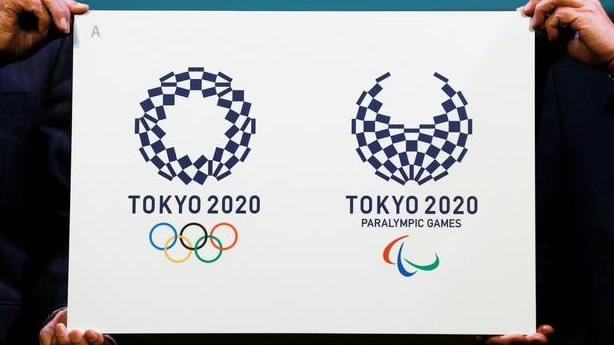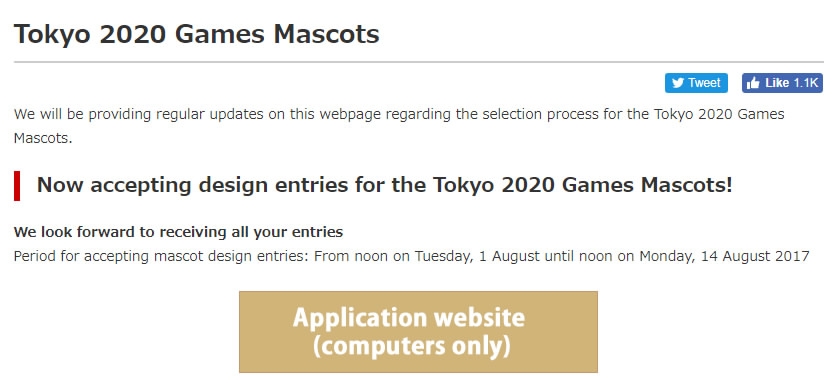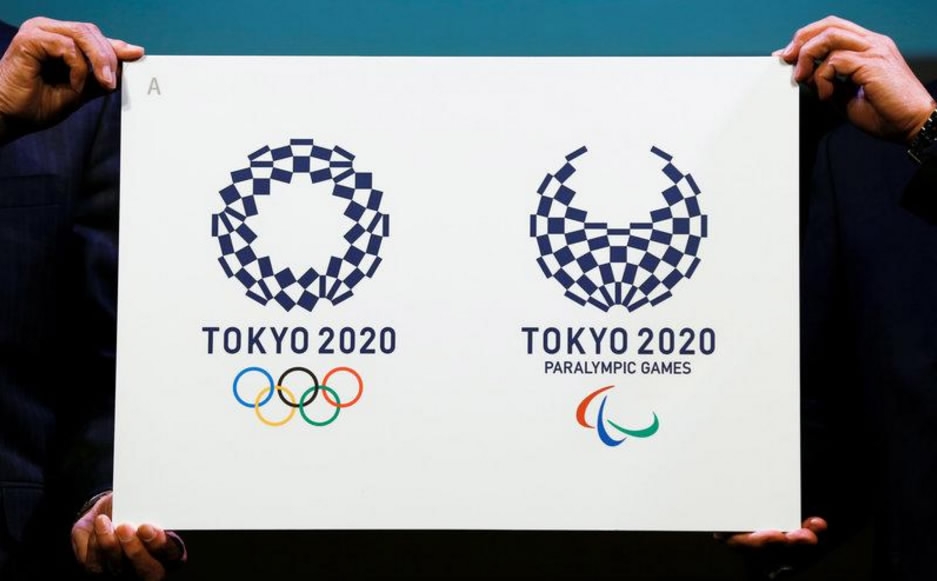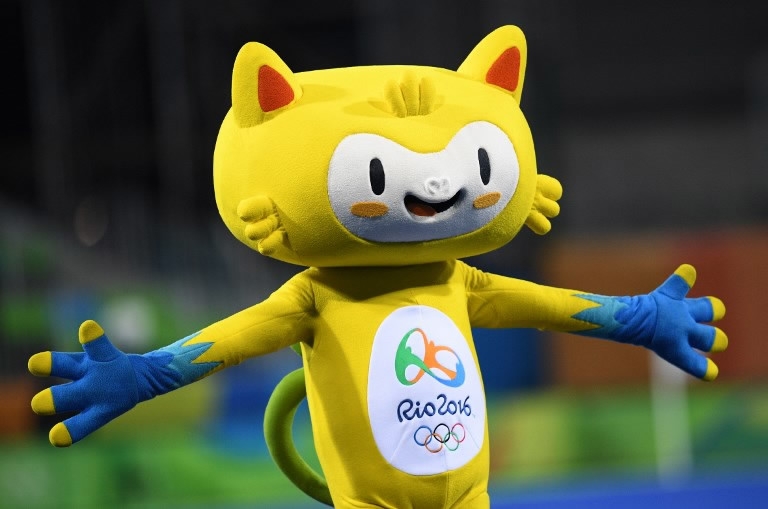
Culture & Sports
23:03, 02-Aug-2017
2020 Tokyo Olympic organizers open mascot design competition

The organizing committee for the 2020 Tokyo Olympics announced on Tuesday a campaign to accept design entries from the public for the official mascots, and said elementary school students would vote for the winners.
Over 200 schoolchildren attended a ceremony held at Kuramae Elementary School in Asakusabashi in Tokyo to celebrate the competition's launch.

Screenshot of the organizing committee's official website
Screenshot of the organizing committee's official website
In May, the idea to hold the competition was announced by the organizing committee. It quickly gained public attention as it created a better way to engage the younger generation and give them an important role to play in the preparations for the Games.
Citizens and foreign residents aged 18 and above are eligible to submit their designs on the Tokyo 2020 official website during a two-week period starting from Monday, and the result of the final winners will be announced by early February.

The Tokyo 2020 Emblems Selection Committee presents the winning design of the Olympic Games and Paralympic Games during its unveiling ceremony in Tokyo, Japan on April 25, 2016. /Reuters Photo
The Tokyo 2020 Emblems Selection Committee presents the winning design of the Olympic Games and Paralympic Games during its unveiling ceremony in Tokyo, Japan on April 25, 2016. /Reuters Photo
A selection panel will draw up a shortlist for the school children to vote. The prizes include tickets to some Olympic events and up to 1 million yen ($8,975) in cash.
The mascot has been a Games tradition dating back to the 1968 Winter Games in Grenoble, France.

Vinicius, the mascot of Rio 2016 Olympics Games. /AFP Photo
Vinicius, the mascot of Rio 2016 Olympics Games. /AFP Photo
More recently, Vinicius, an amalgamation of Brazilian fauna, was the mascot for the 2016 Olympics in Rio. Quatchi the sasquatch represented the 2010 Vancouver Winter Games, and Olly the kookaburra was created for the 2000 Sydney Summer Olympics.
Tokyo 2020 Olympic organizers unveiled a new logo in April after the original choice was scrapped amid accusations that the design had been plagiarized.

The original Games logo designed by Kenjiro Sano received accusations of plagiarism. /Reuters Photo
The original Games logo designed by Kenjiro Sano received accusations of plagiarism. /Reuters Photo
However, members of the committee emphasized the transparency of the selection process, saying the logo was selected through an open competition – the first in Olympic history – in an effort to overcome setbacks caused by previous missteps.
The 2020 Tokyo Games will be Japan's second time hosting the Summer Olympics, after the Tokyo 1964 Olympics.
(With input from Reuters)

SITEMAP
Copyright © 2018 CGTN. Beijing ICP prepared NO.16065310-3
Copyright © 2018 CGTN. Beijing ICP prepared NO.16065310-3